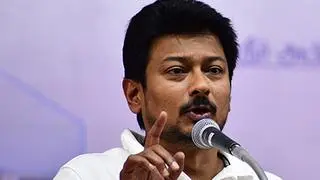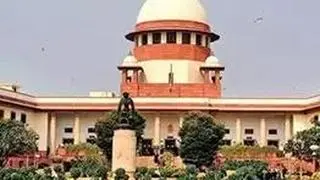Of late, the campus slogan “If politics determines your future, it is time you determined your politics” seems to be ringing true among urban youth.
A new report finds that youth interest in politics is rising in India, though it is not yet reflected in direct participation in politics, such as voting and joining a political party.
State of the Urban Youth, India 2012, by Iris Knowledge Foundation, commissioned by the UN Habitat’s Global Urban Youth Research Network, comes at a time when momentum is building up for the general elections due next year in India.
The report, which collated various academic studies and data to give a glimpse into India’s demographics, recognises the “politicisation” of urban youth, but says that their recognition as a political category is “still only an emerging phenomenon.”
“…Youth in towns and cities take more interest in politics now compared to the past. Data indicate that while in 1996 only 43 per cent of urban youth said that they had an interest in politics, in 2011, this number had risen with just a little less than three-quarters of youth (71 per cent) admitting to having an interest in politics,” the report says quoting a survey by the Centre for Study of Developing Societies.
In recent times, widespread youth participation was seen in the anti-graft stir led by Anna Hazare, in the protests against the gang-rape in Delhi, in the Telangana agitation in Andhra Pradesh, against the ‘custodial’ death of a student and the recent vandalism in Presidency College, Kolkata, among others.
Among the major reasons influencing the growing interest of youth in politics is education, economic background, and media exposure, says the report.
Voter turnout
Despite growing interest in politics, the report finds no significant increase in voter turnout among youth.
Interestingly, when asked why they had not voted, the single most important reason given by urban youth was that they were out of station.
Gender divide
However, a gender divide is evident. “Young urban men are more interested in politics than young urban women. About 46 per cent of young urban women are interested in politics as compared to 81 per cent of young urban men,” says the report.
Interestingly, the more educated among women seem least interested in politics. “The categories among women which report the highest ‘No Opinion’ are the college educated and high school-pass women. This is not only in contradiction to men but to the general hypothesis that education makes an individual more likely to have an opinion,” it adds.







Comments
Comments have to be in English, and in full sentences. They cannot be abusive or personal. Please abide by our community guidelines for posting your comments.
We have migrated to a new commenting platform. If you are already a registered user of TheHindu Businessline and logged in, you may continue to engage with our articles. If you do not have an account please register and login to post comments. Users can access their older comments by logging into their accounts on Vuukle.